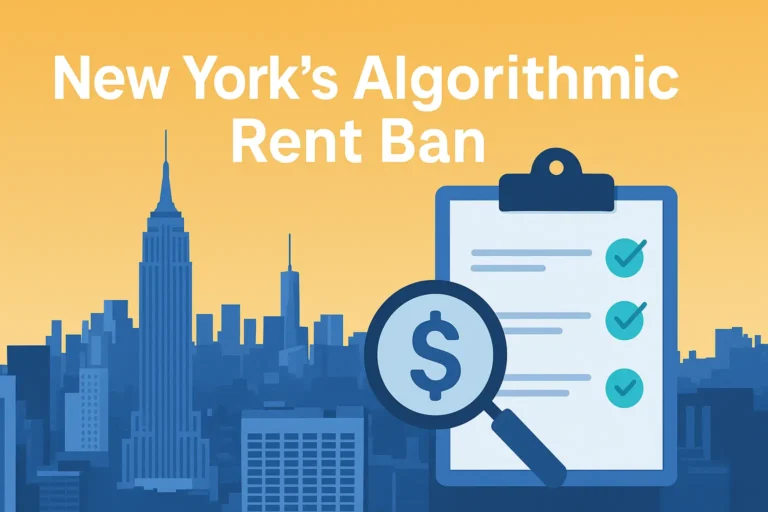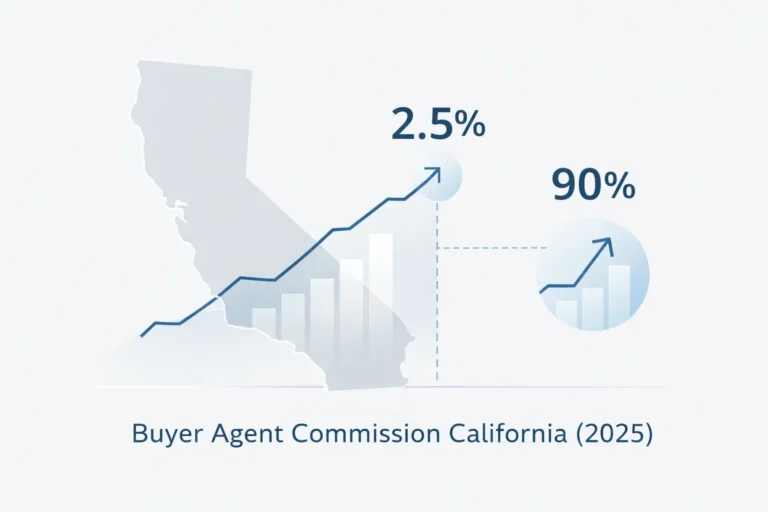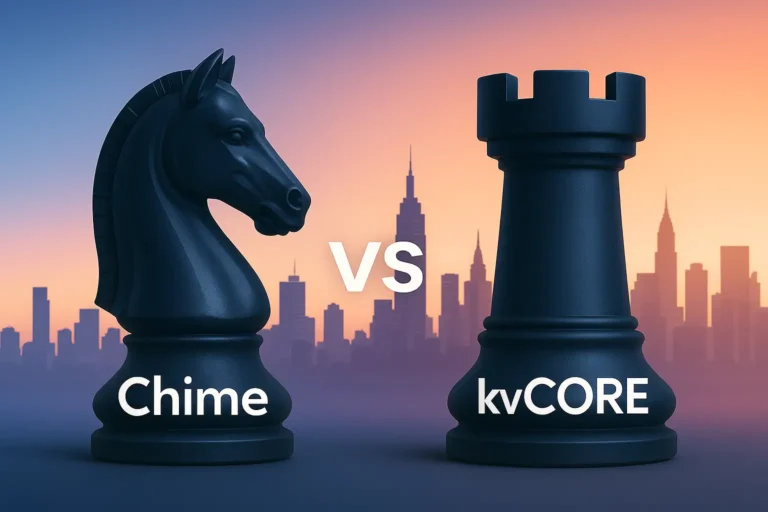The Complete Guide to Building a Million-Dollar Luxury Real Estate Career: From First License to Seven-Figure Success
Many agents dream of making it big, but few know how to step beyond average commissions into the world of oceanfront estates, $300,000 deals, and exclusive clienteles. I’ve been there. I’ve felt the thrill of unlocking that level, and I’ve also navigated the hard parts no one talks about. The sleepless nights wondering if you’re good enough, the imposter syndrome when walking into your first $10 million listing, and the fear of making a mistake that could cost you everything you’ve worked for.
But here’s what I’ve learned: luxury real estate isn’t just about bigger commissions. It’s about becoming a curator of dreams and a guardian of legacy.
Last month, I stood in the mahogany-paneled library of a Hamptons estate, watching my client’s hands tremble slightly as she signed the final documents. This wasn’t just any sale—it was a $12 million oceanfront property that had been in her family for three generations. As she handed me the keys, she whispered, “Thank you for finding someone who will love this place as much as we have.” That moment, worth a $300,000 commission, reminded me why luxury real estate is unlike any other career path.
This isn’t just a fantasy. It’s the reality for thousands of luxury real estate professionals who’ve cracked the code on serving high-net-worth clients. But here’s what most people don’t understand: the path to luxury real estate success isn’t about luck, connections, or even having wealthy friends. It’s about mastering a specific set of skills, building authentic relationships, and positioning yourself as an indispensable advisor to people making life-changing decisions.
After spending over a decade in luxury real estate and mentoring hundreds of agents who’ve built seven-figure practices, I’ve seen what separates those who thrive from those who struggle to break through. This comprehensive guide will show you exactly how to build a luxury real estate career that not only generates substantial income but also provides the professional fulfillment that comes from working at the highest levels of the industry.
Why Luxury Real Estate Is Unlike Any Other Sales Career
Walking into luxury real estate from traditional residential sales is like switching from a neighborhood bistro to a Michelin-starred restaurant. Everything changes: the clientele, the properties, the stakes, and especially the service expectations.
In traditional real estate, you might help a young couple find their first home or assist a family in upgrading to accommodate growing needs. These are meaningful transactions, but they’re fundamentally different from luxury sales where you’re dealing with properties that serve as both lifestyle statements and wealth preservation vehicles.
The Properties Tell Stories
Luxury properties aren’t just homes; they’re architectural masterpieces with histories. You might find yourself marketing a Frank Lloyd Wright original, a converted 19th-century mansion, or an ultra-modern smart home with technology that rivals NASA facilities. Each property requires you to understand not just square footage and bedrooms, but architectural significance, historical importance, and the lifestyle it enables.
I remember my first luxury listing: a 1920s Mediterranean revival estate that had hosted three generations of a prominent family. The current owner didn’t just want to sell a house; she wanted to ensure it went to someone who would preserve its character and continue its legacy. That transaction taught me that luxury real estate is as much about stewardship as it is about sales.
The Clients Think Differently
Luxury buyers approach real estate with a completely different mindset. They’re not browsing Zillow on Sunday afternoons or attending neighborhood open houses. Instead, 68% of luxury transactions begin with personal relationships and referrals. Your success depends on becoming a trusted advisor within exclusive circles rather than a marketing expert reaching the masses.
These clients view real estate through multiple lenses simultaneously. They’re considering lifestyle enhancement, investment potential, privacy and security, family legacy, and often tax implications across multiple jurisdictions. Your role extends far beyond showing properties to helping them navigate complex decisions with significant financial and personal ramifications.
Your Strategic Roadmap to Luxury Real Estate Mastery
Phase 1: Build Your Foundation (Months 1-6)
Master the Licensing Basics
Every luxury real estate career begins with obtaining your basic real estate license. This means completing your state’s pre-licensing education (typically 60-180 hours), passing the licensing exam, and handling administrative requirements like background checks and continuing education.
But here’s where most aspiring luxury agents make their first critical error: they think the basic license is sufficient. In luxury real estate, credibility is everything. Clients expect you to demonstrate specialized expertise that goes far beyond basic licensing requirements.
Invest in Luxury-Specific Education
The Certified Luxury Home Marketing Specialist (CLHMS) designation from the Institute for Luxury Home Marketing has become the industry gold standard. To earn this certification, you must complete specialized luxury training and prove your competence with documented luxury transactions in your market’s top 10% within 24 months.
The National Association of Realtors offers the Luxury Homes Certification (LHC), covering essential topics like pricing strategies for unique properties, advanced negotiation tactics, and market research techniques specific to luxury segments.
Consider supplementing these certifications with education in complementary areas. Business administration helps you understand your clients’ corporate needs. Art history knowledge proves invaluable when working with properties featuring significant collections or architectural details. Even basic knowledge of wine, fine dining, or luxury travel can enhance your credibility in client conversations.
Phase 2: Develop Your Luxury Skill Set (Months 3-12)
What Skills Do Luxury Real Estate Agents Need Most?
The core competencies that separate luxury agents from the rest include:
- High-level communication and cultural adaptability
- Absolute discretion and confidentiality management
- Advanced market knowledge and pricing expertise
- Strategic networking and relationship-building
- Digital storytelling and sophisticated marketing
- Technology proficiency for virtual presentations
- Understanding of complex financial structures
“The biggest mistake I see? Agents focusing on selling features. In luxury, you sell emotion and identity.” – Sarah Chen, $180M+ in career sales
Let me break down each of these critical skills:
Communication Mastery
Working with high-net-worth individuals requires adapting your communication style for incredibly diverse clientele. You might work with tech entrepreneurs who prefer text communication and rapid decision-making, old-money families who value formal protocols and deliberate processes, or international investors navigating language barriers and cultural differences.
I learned this lesson early when I misread a client’s communication preferences. A successful hedge fund manager preferred detailed written summaries after our meetings, while his wife wanted quick phone check-ins. Understanding and adapting to these preferences transformed our working relationship and led to three referrals within six months.
📋 CASE STUDY: How I Landed My First Luxury Listing Without a Track Record
I attended a charity fundraiser for the local art museum, not expecting to walk away with a $4M lead. But a genuine conversation about Frank Lloyd Wright’s architectural philosophy and our community’s preservation efforts opened the door to trust. The collector I met that evening had been quietly considering selling her Prairie-style home but hadn’t found an agent who truly understood its significance. Within three months, I closed my first high-ticket deal by focusing on legacy preservation rather than just market value.
Key Takeaway: Authenticity and genuine interest in what matters to luxury clients often matter more than your track record.
Market Intelligence Excellence
Luxury markets operate on nuances that don’t exist in traditional segments. You need to understand not just property values, but architectural styles, historical significance, investment potential, and lifestyle implications of different neighborhoods.
This means knowing which school districts attract wealthy families, understanding how zoning changes might affect property values, recognizing architectural details that add premium value, and staying current on luxury market trends that influence buyer preferences.
Technology Proficiency
Modern luxury marketing relies heavily on advanced technology, but it must enhance rather than replace personal service. Virtual tours, drone photography, 3D modeling, and sophisticated CRM systems are standard tools. You’ll also need to understand how to present properties through virtual reality, create compelling digital marketing campaigns, and use data analytics to identify potential buyers.
Discretion and Integrity
Privacy isn’t just preferred in luxury real estate; it’s absolutely mandatory. Many clients are public figures, business leaders, or individuals who value privacy for security reasons. Your ability to handle sensitive information, maintain confidentiality, and protect client interests will determine your long-term success.
This extends beyond just keeping transaction details private. It means understanding which photographers and vendors can be trusted with high-profile properties, knowing how to market properties without revealing sensitive location details, and maintaining client confidentiality even in casual social settings.
Phase 3: Build Your Strategic Network (Months 6-24)
Elite Event Networking
Success in luxury real estate fundamentally depends on relationships. While traditional agents might generate leads through online advertising or direct mail, luxury agents build their business through strategic networking and referral relationships.
Start attending charity galas, art gallery openings, and exclusive club events. Join organizations where your potential clients spend time: golf clubs, yacht clubs, wine societies, and cultural institutions. These venues provide natural networking opportunities where relationships develop organically around shared interests.
Professional Partnership Development
Build relationships with professionals who serve high-net-worth individuals daily. Wealth managers, estate planning attorneys, private bankers, and tax advisors all work with potential luxury real estate clients. These professionals can become valuable referral sources when you prove your competence and discretion.
I built one of my most valuable referral relationships by consistently providing market insights to a wealth management firm. When their clients mentioned real estate needs, I became their go-to recommendation because I had already demonstrated my expertise and reliability.
Industry Connection Strategy
Connect with luxury service providers including interior designers, architects, contractors specializing in high-end work, and concierge services. These professionals often know when clients are considering real estate moves and can provide valuable insights into market trends and client preferences.
Marketing Luxury Properties: The Art of Sophisticated Storytelling
Marketing luxury real estate requires completely different strategies from traditional property marketing. You’re not just selling a house; you’re selling a lifestyle, a statement, and often a piece of history.
Visual Storytelling Excellence
Every luxury property has a story, and your job is telling it compellingly. This requires significant investment in high-quality photography, professional videography, and increasingly, drone footage that captures the property’s setting and scale.
Virtual staging technology allows you to show potential buyers how spaces can be optimized, while 3D tours enable remote viewing for international clients or those with demanding schedules. The key is creating marketing materials that match the property’s sophistication level.
Targeted Marketing Channels
Luxury properties require specialized marketing channels. Beyond traditional MLS listings, you’ll use platforms specifically designed for luxury properties, international real estate websites, and publications that cater to affluent audiences.
Creating custom marketing materials for each property is standard practice. This might include beautifully designed brochures, professional property videos, coffee table books for exceptional properties, and even virtual reality experiences for out-of-state buyers.
Building Your Luxury Personal Brand: You Are Your Most Important Marketing Asset
In luxury real estate, clients buy you first, then your services. Your personal brand must reflect the sophistication and discretion your clients expect.
Crafting Your Luxury-Aligned Digital Presence
LinkedIn Profile Optimization:
- Professional headshot with luxury staging or architectural backdrop
- Headline focusing on your expertise: “Luxury Real Estate Specialist | Historic Estates & Waterfront Properties”
- Summary highlighting your certifications, unique value proposition, and client testimonials
- Regular posts sharing market insights, not personal lifestyle content
Social Media Presence Guidelines:
- Instagram: Focus on property architecture, market insights, and educational content
- Facebook: Professional page only, no personal posts visible to clients
- Twitter/X: Share market analysis, industry news, and thought leadership content
Professional Image Standards
Wardrobe Investment:
- Quality over quantity: Invest in well-tailored suits and professional attire
- Neutral, classic colors that photograph well
- Attention to details: quality shoes, accessories, and grooming
Presence and Etiquette:
- Master the art of active listening during client conversations
- Understand dining etiquette for business meals at upscale restaurants
- Learn basic wine knowledge for property events and client entertainment
“Your appearance is your first marketing statement. Make sure it says ‘I understand your world’ before you even speak.” – Marcus Rivera, Luxury Real Estate Specialist
Building Credibility Through Content
Exclusive Preview Strategy
Private showings and exclusive preview events work better than traditional open houses for luxury properties. These events allow you to control the guest list, create intimate atmospheres, and provide personalized attention to serious buyers.
Consider hosting themed events that highlight property features: wine tastings in custom cellars, art exhibitions in gallery spaces, or garden parties showcasing landscaping. These events create memorable experiences that help properties stand out in buyers’ minds.
📋 CASE STUDY: The $8M Penthouse That Sold at a Private Concert
A client’s penthouse had been on the market for 8 months with little interest. Instead of another traditional showing, I arranged for a classical quartet to perform in the living room while serving champagne and canapés. The acoustics were incredible, and the 15 carefully selected guests could envision entertaining in the space. Three offers came in within a week, and we closed $200K over asking price.
Key Takeaway: Create experiences that help buyers emotionally connect with the lifestyle the property enables.
Overcoming the Top 5 Luxury Real Estate Challenges
Challenge 1: Building Credibility Without Track Record
The biggest barrier for new luxury agents is establishing credibility without an established track record. Here are proven strategies to overcome this challenge:
Partner with Experienced Agents: Consider joining a team or working as an associate with an established luxury specialist. This provides mentorship, shared resources, and access to their network while you build your own reputation.
Focus on Service Excellence: Your first few luxury transactions are crucial for building reputation. Invest extra time and resources to ensure these clients receive exceptional service that leads to referrals and testimonials.
Develop Specialized Expertise: Become an expert in a specific niche within luxury real estate. This might be waterfront properties, historic homes, luxury condominiums in a particular area, or properties with specific amenities like wine cellars or horse facilities.
Challenge 2: Managing Elevated Expectations
Luxury clients have dramatically elevated expectations for service, communication, and results. They expect immediate responses, detailed market knowledge, and seamless transaction management.
Success requires anticipating needs rather than just responding to requests. This might mean arranging private jets for property tours, coordinating with multiple time zones for international clients, or managing complex financing arrangements involving multiple properties or business entities.
Challenge 3: Navigating Market Volatility
Luxury markets can be particularly sensitive to economic changes, geopolitical events, and shifts in wealth distribution. Successful luxury agents develop strategies to weather these fluctuations:
Diversify Your Client Base: Work with different types of luxury buyers, from local business leaders to international investors to celebrities and sports figures. This diversification helps stabilize your business during market shifts.
Stay Informed: Understand economic trends, tax law changes, and political developments that might affect your clients’ real estate decisions. Subscribe to financial publications, attend economic briefings, and maintain relationships with financial advisors.
Challenge 3: Navigating Market Volatility
Luxury markets can be particularly sensitive to economic changes, geopolitical events, and shifts in wealth distribution. Successful luxury agents develop strategies to weather these fluctuations:
Diversify Your Client Base: Work with different types of luxury buyers, from local business leaders to international investors to celebrities and sports figures. This diversification helps stabilize your business during market shifts.
Stay Informed: Understand economic trends, tax law changes, and political developments that might affect your clients’ real estate decisions. Subscribe to financial publications, attend economic briefings, and maintain relationships with financial advisors.
Maintain Strong Relationships: During market downturns, referrals from past clients and professional contacts become even more valuable. Continue providing value through market updates, property insights, and personal attention even when you’re not actively working on transactions.
📋 CASE STUDY: Pivoting During the 2020 Market Uncertainty
When the pandemic hit, my luxury market initially froze. Instead of panicking, I pivoted to virtual tours and began hosting “luxury living webinars” for my database. Topics included home office design, wine cellar management, and creating spa experiences at home. This kept me top-of-mind with clients, and when the market rebounded in late 2020, I had my best year ever with $47M in sales.
Key Takeaway: Market downturns are opportunities to deepen relationships and position yourself for the inevitable recovery.
Challenge 4: Pricing Unique Properties
Luxury property pricing requires sophisticated market analysis because comparable sales are often limited. You’ll need to consider unique features, location premiums, architectural significance, and current market conditions.
Invest in continuing education about appraisal techniques and build relationships with luxury appraisers to understand their methodologies. Consider obtaining additional certifications in property valuation or market analysis.
Challenge 5: Managing Complex Transactions
Luxury transactions often involve multiple properties, international buyers, complex financing arrangements, and various legal considerations. Develop relationships with professionals who specialize in luxury transactions: attorneys experienced in high-value deals, lenders who understand jumbo financing, and accountants familiar with luxury real estate tax implications.
The Technology Stack Every Luxury Agent Needs
Technology plays an increasingly important role in luxury real estate, but it must be implemented thoughtfully to maintain the personal service that luxury clients expect.
Essential Technology Tools
Customer Relationship Management (CRM): A sophisticated CRM system helps track client preferences, important dates, and communication history. Look for systems designed specifically for luxury real estate that can handle complex client profiles and transaction details.
Virtual Tour Platforms: Matterport and similar platforms create immersive 3D experiences that allow clients to explore properties remotely. This is particularly valuable for international clients or those with busy schedules.
Marketing Automation: While maintaining personal touch, automation can help with follow-up sequences, market updates, and important date reminders. The key is using automation to enable more personal service, not replace it.
Secure Communication: Given the high-profile nature of many luxury clients, secure communication platforms protect sensitive information and provide peace of mind.
Income Potential: What You Can Really Expect to Earn
The financial rewards in luxury real estate can be substantial, but they require significant investment in time, education, and relationship building.
Realistic Earning Timeline
Year 1: New luxury agents typically earn $75,000 to $150,000, assuming successful completion of 2-4 luxury transactions while building their network and reputation.
Years 2-3: Established professionals often earn $200,000 to $500,000 annually as referrals begin generating consistent business and they handle larger, more complex transactions.
Years 4-5+: Top performers can earn $750,000 to $2 million annually, with some exceptional agents earning even more through high-volume practices and premium price points.
Understanding Commission Structure
Luxury real estate commissions typically follow industry standards (2.5-3% per side), but higher property values result in substantial absolute earnings. A $5 million property sale with a 2.5% commission and 80% agent split results in $100,000 in gross commission.
The key to maximizing income is increasing both volume and average price point. Top luxury agents handle 15-30 transactions annually at increasingly higher price points as their reputation grows and their network expands.
Future Trends Shaping Luxury Real Estate
Understanding emerging trends helps position yourself for long-term success in the evolving luxury market.
Technology Integration Evolution
Artificial intelligence and machine learning are beginning to impact property valuations and market analysis. Virtual and augmented reality are becoming standard tools for property presentation, while blockchain technology promises to streamline high-value transactions.
Smart home technology is becoming expected rather than exceptional in luxury properties. Understanding these systems and their implications for property value and buyer appeal is increasingly important.
Generational Wealth Transfer
The largest generational wealth transfer in history is underway, with trillions of dollars passing from Baby Boomers to younger generations. These new wealthy individuals often have different expectations for technology integration, sustainability, and lifestyle amenities.
Sustainability Focus
Environmental consciousness is increasingly important in luxury real estate. Properties with sustainable features, energy efficiency, and minimal environmental impact command premium prices and appeal to socially conscious luxury buyers.
Global Market Connectivity
Global Market Connectivity and International Buyer Strategy
International investment in luxury real estate continues growing, requiring agents to understand global markets, currency fluctuations, and international transaction processes. Consider developing expertise in working with specific international markets that are active in your area.
Understanding Investor Visa Programs:
- EB-5 Visa Requirements: Minimum $800K investment in targeted employment areas, $1.05M in non-targeted areas
- E-2 Treaty Investor Visas: Substantial investment requirements vary by country of origin
- Popular Source Countries: China, India, UAE, Canada, and Mexico represent the largest international buyer segments
Currency and Financial Considerations:
- Partner with foreign exchange specialists who can help clients with currency hedging
- Understand how exchange rate fluctuations affect international buyers’ purchasing power
- Build relationships with international tax advisors who understand cross-border real estate implications
Cultural Competency Requirements:
- Learn basic cultural business practices for your primary international client markets
- Understand different negotiation styles and decision-making processes
- Consider learning key phrases in languages commonly spoken by your international clients
“International buyers aren’t just purchasing property; they’re often making life-changing decisions about where to establish their families or businesses. Understanding their broader goals makes you invaluable.” – David Kim, International Luxury Specialist
Comprehensive FAQ: Your Luxury Real Estate Questions Answered
FAQ: Your Luxury Real Estate Questions Answered
How do I transition from regular real estate to luxury?
Transitioning to luxury real estate requires strategic planning and patience. Start by earning luxury-specific certifications (CLHMS or LHC), then focus on one luxury market segment where you can build expertise. Partner with an experienced luxury agent as a mentor, invest in high-quality marketing materials, and begin networking in affluent communities. Expect the transition to take 12-18 months of focused effort.
Do luxury agents use different tools than regular agents?
Yes, luxury agents require specialized technology and marketing tools:
- Advanced CRM systems for managing complex client relationships
- 3D virtual tour platforms (Matterport, Zillow 3D Home)
- Drone photography and videography equipment
- Professional marketing design software for custom materials
- Secure communication platforms for high-profile clients
- International wire transfer and currency exchange partnerships
How long does it realistically take to establish yourself in luxury real estate?
Building a successful luxury real estate practice typically takes 3-5 years of focused effort. The first year involves getting licensed, earning certifications, and building your network. Years two and three focus on completing your first luxury transactions and building credibility. By years four and five, referrals should drive consistent business. Some agents break through faster by joining established teams or focusing intensively on networking in affluent communities.
What’s the most common mistake new luxury agents make?
The biggest mistake is trying to compete on price or commission rather than value. Luxury clients aren’t seeking the cheapest service; they want the best results and experience. New agents who discount their commissions often signal that they don’t understand the luxury market’s value proposition. Focus on demonstrating expertise, providing exceptional service, and building authentic relationships.
What’s the most common mistake new luxury agents make?
The biggest mistake is trying to compete on price or commission rather than value. Luxury clients aren’t seeking the cheapest service; they want the best results and experience. New agents who discount their commissions often signal that they don’t understand the luxury market’s value proposition. Focus on demonstrating expertise, providing exceptional service, and building authentic relationships.
Do I need to be wealthy myself to succeed in luxury real estate?
While personal wealth can be helpful, it’s not necessary for success. What matters more is your ability to understand and serve luxury clients effectively. Many successful luxury agents started with modest means but developed the knowledge, skills, and relationships necessary to serve high-net-worth clients professionally. Investment in professional development and marketing materials is more important than personal luxury assets.
How important is where I live for luxury real estate success?
Living in or near luxury markets can be helpful but isn’t absolutely necessary. What matters more is your deep knowledge of luxury neighborhoods, including their characteristics, amenities, schools, and lifestyle offerings. Many successful luxury agents commute to their target markets while maintaining offices in luxury areas.
Should I specialize in a specific type of luxury property?
Focusing on a specific type of luxury property can help you build authority, attract the right clients, and create a more targeted marketing strategy. Here’s a quick breakdown of common niches, along with their advantages and challenges:
| Property Type | Pros | Cons |
|---|---|---|
| Waterfront Properties | High demand, premium pricing, lifestyle appeal | Subject to weather risks and seasonal slowdowns |
| Historic Estates | Unique expertise, passionate buyers | Limited inventory and complex regulations |
| Luxury Condos | Higher transaction volume, urban appeal | Lower individual commissions, intense competition |
| Equestrian Properties | Valued niche expertise, loyal clientele | Very specialized market with fewer buyers |
Specialization can be very effective, especially when starting out. It allows you to develop deep expertise and become known as the go-to expert in your niche.
How do I handle international clients effectively?
International luxury buyers require specialized knowledge of immigration laws, financing requirements, tax implications, and cultural considerations. Take courses in international real estate transactions and build relationships with professionals who specialize in serving international clients, including immigration attorneys, international tax advisors, and currency exchange specialists.
What role should social media play in my luxury real estate marketing?
Social media is important but must be handled carefully in luxury real estate. Focus on educational content, market insights, and property features rather than personal lifestyle posts. LinkedIn is particularly valuable for connecting with business leaders and demonstrating expertise. Instagram can showcase properties and architectural features, but always respect client privacy and property security.
How do I price luxury properties without many comparable sales?
Luxury property pricing requires sophisticated market analysis because comparable sales are often limited. Consider unique features, location premiums, architectural significance, and current market conditions. Build relationships with luxury appraisers, invest in continuing education about valuation techniques, and consider obtaining additional certifications in property valuation.
What’s the best way to generate leads in luxury real estate?
Lead generation in luxury real estate is primarily relationship-based. Focus on building authentic relationships within affluent communities through networking events, charity involvement, and professional partnerships. Provide value through market insights, educational content, and exceptional service that leads to referrals from satisfied clients and professional contacts.
How do I maintain client relationships after transactions close?
Maintaining relationships after closing is crucial for referrals and repeat business. Stay in touch through market updates, holiday greetings, and personal notes about important events. Provide ongoing value through market insights, property maintenance referrals, and invitations to exclusive events. Remember important dates and continue treating past clients as VIPs.
Your Next Steps to Luxury Real Estate Success
Breaking into luxury real estate requires patience, persistence, and strategic investment in your professional development. The path isn’t always easy, but for those who commit to mastering the specialized skills and building authentic relationships, the rewards extend far beyond financial compensation.
Start by obtaining your basic license and immediately begin working toward luxury certifications. Invest in quality marketing materials, professional photography, and a sophisticated online presence that reflects the level of service you’ll provide.
Most importantly, begin building relationships within affluent communities today. Attend charity events, join exclusive organizations, and connect with professionals who serve high-net-worth individuals. Remember that success in luxury real estate comes from becoming a trusted advisor to people making significant financial and lifestyle decisions.
The luxury real estate market offers extraordinary opportunities for agents willing to invest in the specialized knowledge, skills, and relationships required for success. While the barriers to entry are higher than traditional real estate, the rewards for those who persist can be truly life-changing.
Your luxury real estate career begins with a single step. Whether that’s researching licensing requirements, identifying certifications to pursue, or attending your first networking event in an affluent community, start today. The world of luxury real estate needs dedicated professionals who understand that success comes not from selling houses, but from helping sophisticated clients make decisions that enhance their lives and preserve their wealth for future generations.
The opportunity is waiting. Your luxury real estate success story starts now.







6 Comments